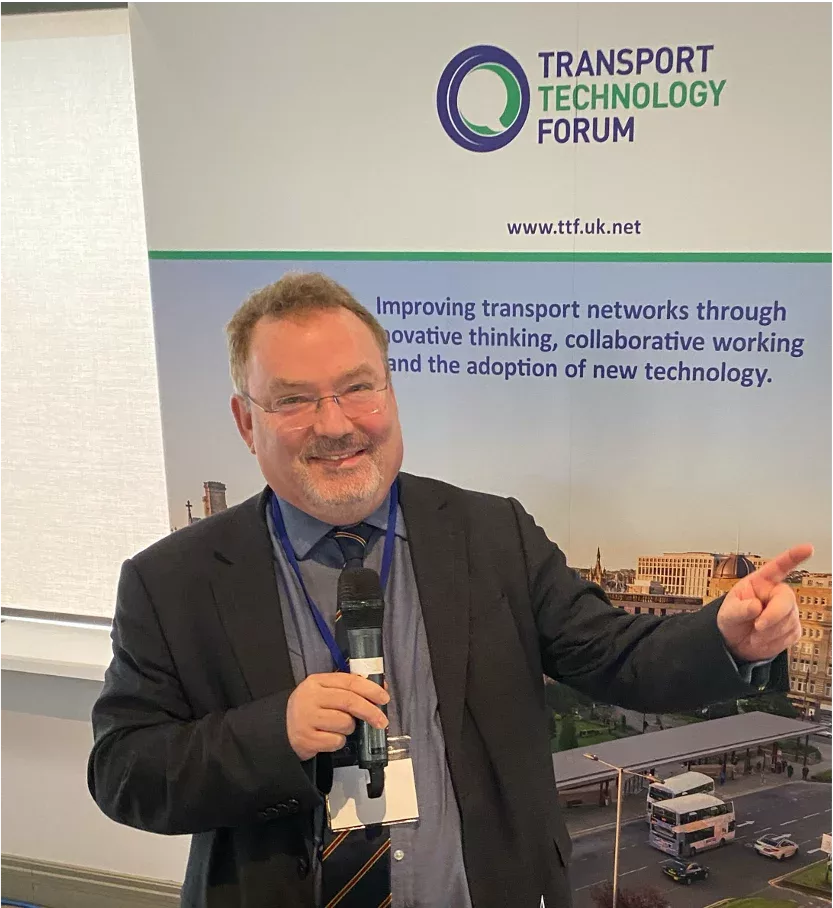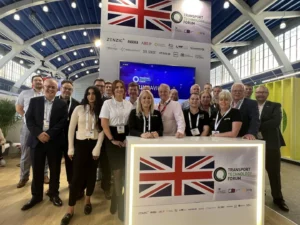The Department for Transport’s Chief Scientific Adviser has told the Transport Technology Forum conference that he has been extremely impressed by the way the industry stepped up to support government during the COVID-19 crisis.
Opening the final session of the virtual conference, Professor Phil Blythe, who is a member of the SAGE Committee, told the delegates that when the first lockdown was announced, there were few ways to actually know if people were adhering to the guidance. “Having that transport data was hugely helpful,” he explained. “The amount of organisations and individuals who came and offered data and suggested where data could be brought together to help us was really, really significant.”
Professor Blythe explained that when he first started trying to provide data for the nightly televised ministerial briefings, he was shocked how little data on transport the Department of Transport actually had, and how much he had to “beg, steal and borrow”. This sparked an appeal by the TTF for local authorities, private data providers and consultancies to share their data, which led to a weekly report analysing travel changes. “What we have now is absolutely amazing – we understand transport far better,” Prof Blythe said. “As we come through COVID, I think the pandemic has really raised real questions about how, as a society, we can do transport better? We think about people naturally now thinking of video conferencing as a key way of doing business and personal connections. We think about the repurpose roads in the central cities and towns, to pedestrians, cyclists and micro mobility.”
He added that the richer data set will also help the economic recovery after the huge hit caused by the year of restrictions. “We think about the left-behind places and those cities, towns and other places where there’s going to be significant unemployment – we really need to work out ways of ensuring transport exists in a way to help people have an economic radius of opportunity to get from A to B for employment opportunities, training and education. So I think what ITS has delivered is fantastic.” Referring to the industry as a whole he said, “I think you stepped up. I think we understand travel much better, whether that be public transport, how it’s running, patronage, how our roads are operating, and where people are going to and from. All that sort of data helps us think that we can have a really integrated transport management system far, far better than we’ve had in the past.”
Prof Blythe concluded his speech by hinting the industry’s co-operation over the past year strengthens the case for future investment. “That’s going to deliver on some of the key challenges that we have around decarbonisation, because it’s going to help with things like demand management and with levelling up,” he said. “Also, because there are different ways of doing this, I think, the focus is on place-based solutions to play to the strengths and the capabilities and facilities that people have. At the heart of this is the technology, the innovations and just the hard work that everybody in the community put in to really feel they were helping to be part of the solution with COVID. I can’t thank you enough for that. I think going forward we can learn an awful lot for what you did, as a community, and I think we can take it forward and really show better to the DfT and others, the role that ITS plays in managing transport, and making better lives for people.”
The TTF Conference has been recorded and all the sessions will be made available for on-demand viewing very soon via the TTF website so that none of the huge amount of information and knowledge shared over the three days of the event will be lost to the industry.
(Picture from last year’s TTF Conference in Bristol – credit TTF)





















